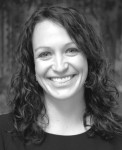Updated
The Latest on Development in Dakhla – Caitlin Dearing Scott
Caitlin Dearing Scott, MAC
March 20, 2015

Caitlin Dearing Scott, SVP, Research, Projects, and Programs, MAC
The seaside town of Dakhla played host last week to the Crans Montana Forum– a yearly gathering organized by the Swiss-based NGO to promote international cooperation and dialogue, growth and stability, and peace and security across the world. Hosted in coordination with the Islamic Educational, Scientific and Cultural Organization (ISESCO) and under the patronage of King Mohammed VI, this year’s theme was “South-South Cooperation and the Development of Africa.” Discussions focused on a range of topics under that banner – economic development, education, employability, youth, and renewable energy in Africa, as well as Morocco’s African cooperation policy.
The forum was attended by more than 800 people from across the globe; government officials were joined by representatives of international organizations, businesspeople, and scholars from more than 112 countries. Distinguished guests included the President of Macedonia, the Prime Ministers of Guinea and Mali, former President of Spain José Luis Rodriguez Zapatero, Under-Secretary-General of the UN Philippe Douste Blazy, and US civil rights leader Jesse Jackson.
Given the theme and ideas discussed, Dakhla was a fitting locale for the Forum. Strategically located on the Atlantic Coast, near the border with Mauritania, Dakhla links North and Sub-Saharan Africa. And as the event’s host noted, the city “offers an extraordinary model of economic and social development, being the hub of an entire, major region of Africa.”
This development is the result of decades of Moroccan investment in the region, which has been a priority of the government. Since 1976, the Moroccan government has committed more than 20 billion dirhams (approximately $2.5 billion) to infrastructure and capacity building in the south. These investments have achieved notable results and the provinces have been completely transformed .Today, their human development rating ranks among the highest, as do its rates for education, health, literacy, and access to infrastructure.
And yet, development challenges remain. To confront them – and to perhaps offer a model that could be applicable elsewhere – in 2012 King Mohammed VI charged the Economic, Social, and Environmental Council (CESE) with creating a regional development model for the Sahara to boost the economy; consolidate social cohesion and the fight against poverty; ensure effective protection of the environment and sustainable territorial development; and define responsible, inclusive governance. The resulting CESE model prioritizes the promotion of citizen participation and the rule of law though the creation of regional bodies for consultation and civil dialogue; investment promotion in order to create 120,000 new jobs and double the region’s GDP over the next 10 years; as well as advanced regionalization through the transfer of power to elected local and regional officials.
What has been achieved in Dakhla thus far is a testament to this vision of the future. The successful conclusion of the Crans Montana Form marks the start of Dakhla’s role as “the heart of the future African economic hub, which will be devoted to serving peace and stability in the sub-Saharan region,” as noted in a speech delivered by Prime Minsiter Abdelilah Benkiran at the Forum on behalf of King Mohammed VI. And it is the beginning, the speech continued, of Morocco’s ambition “to showcase local specificities, to foster good governance at the local level and to devise public policies at the regional level that guarantee efficient state action as well as partnerships with local governments.” The implementation of this CESE initiative – and the regionalization plan meant to accompany it – is ongoing, and its development is certainly one worth watching.